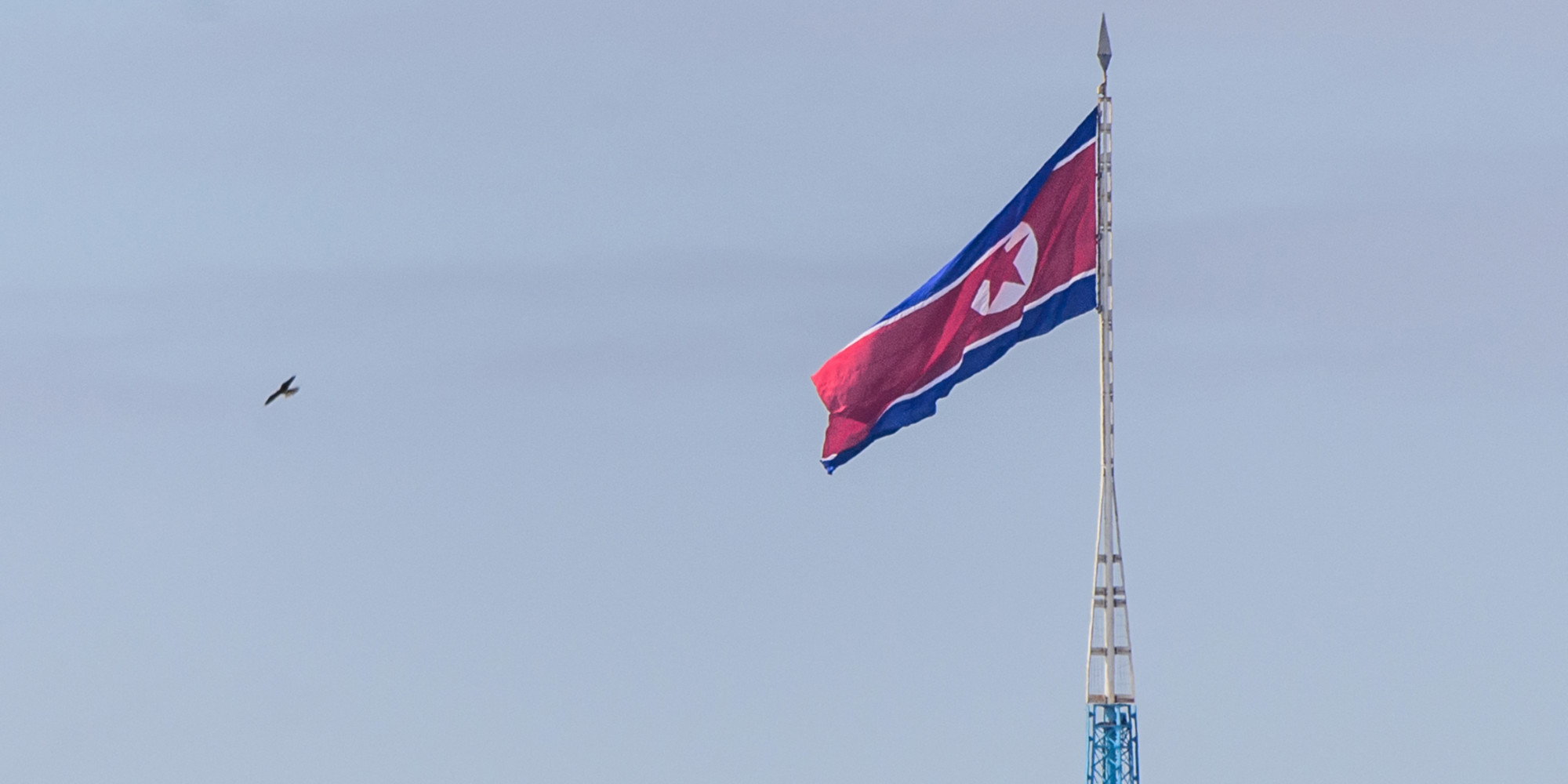Europe 1 with AFP 15:13 pm, May 31, 2023
North Korea said Wednesday it had tried to launch a "military reconnaissance satellite" but it "crashed at sea" after triggering a missile alert in Japan and an erroneous evacuation order in Seoul. Since an escalation of tensions in 2019 with its neighbor, North Korea has accelerated its military development.North Korea said Wednesday it had tried to launch a "military reconnaissance satellite" but it "crashed at sea" after triggering a missile alert in Japan and an erroneous evacuation order in Seoul. "The new Chollima-1 satellite transport rocket crashed into the West Sea," Korea's Yellow Sea name, the state-run KCNA news agency said, explaining the failure as "a loss of thrust due to abnormal starting of the second stage engine, after the first stage separated during normal flight." The projectile "quickly disappeared from radar before reaching its expected drop-off point," according to the South Korean military quoted by Yonhap news agency.
The South Korean military has released images of the debris of the satellite and its launcher that it announced it had recovered from the Yellow Sea, 200 km from the island of Eocheong, far off the western coast of the peninsula. These images show a large cylinder-shaped metal structure with a few pipes and wires at its end. "From the recovered debris, experts will be able to have a much better understanding of North Korea's level of expertise in large, multi-stage launchers," Ankit Panda, a Korea specialist based in the United States, told AFP.
A "flagrant violation" of UN resolutions
The shooting, which came early Wednesday, caused confusion in Japan and Seoul. Sirens sounded, accompanied by a "critical emergency" alert sent by the South Korean capital's city hall at 6:41 a.m. accompanied by a thunderous ringtone on all mobile phones in the city. The alert, which urged residents to prepare for an evacuation by putting "children and the elderly first," was later rescinded, with the Interior Ministry citing an error. According to the South Korean military quoted by Yonhap, the rocket never threatened the Seoul metropolitan area.
>>
READ ALSO – North Korea fires a ballistic missile, the G7 countries condemn "irresponsible behavior"
"Now, when a real alarm goes off, no one will believe it. It's like in the fable of the boy who cried wolf," said a father of two in Seoul. A missile alert was also issued in the Japanese department of Okinawa (south), calling on the population to take shelter. It was also lifted by the government 30 minutes later. The United States condemned the launch, which uses "ballistic missile technology" and "risks destabilizing the security situation in the region and beyond," said Adam Hodge, spokesman for the US National Security Council.
Debris from North Korean satellite found at sea
Credit: AFP PHOTO / SOUTH KOREAN DEFENCE MINISTRY
NATO Secretary General Jens Stoltenberg also condemned the launch, which was carried out "in flagrant violation of UN resolutions". Pyongyang had announced on Tuesday that it would put a spy satellite into orbit in order to "confront the dangerous military actions of the United States and its vassals". Although it does not communicate in advance about its missile tests, the regime generally informs about its space programs presented as peaceful, and had warned that this launch would take place between May 31 and June 11. Tokyo on Wednesday "strongly" condemned the shooting and denounced it as a violation of United Nations Security Council resolutions. In 2012 and 2016, North Korea conducted ballistic missile tests as satellite launches. Both projectiles had flown over the Okinawa area.
Pyongyang talks about the need to "improve various defensive and offensive weapons"
As soon as Pyongyang announced, the satellite launch project was immediately condemned by Tokyo and Seoul, which also invoked United Nations sanctions. These sanctions prohibit North Korea from launching ballistic missiles, which are based on the same technology as space launch vehicles. According to experts, North Korea has no satellites in operation, although it has sent five to space. Three launches failed. As for the other two devices, which were probably put into orbit, no independent organization has ever picked up their signals, suggesting a malfunction.
Criticizing recent military maneuvers between Washington and Seoul, a senior North Korean official said Tuesday that his country felt "the need to develop its reconnaissance and information capabilities as well as improve various defensive and offensive weapons." Since an escalation of tensions in 2019 with its neighbor, North Korea has accelerated its military development and declared itself an "irreversible" nuclear power through its leader, Kim Jong Un. He called for an "exponential" increase in North Korea's arsenal, including tactical nuclear weapons.

